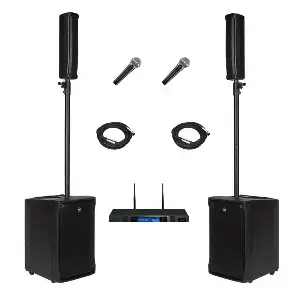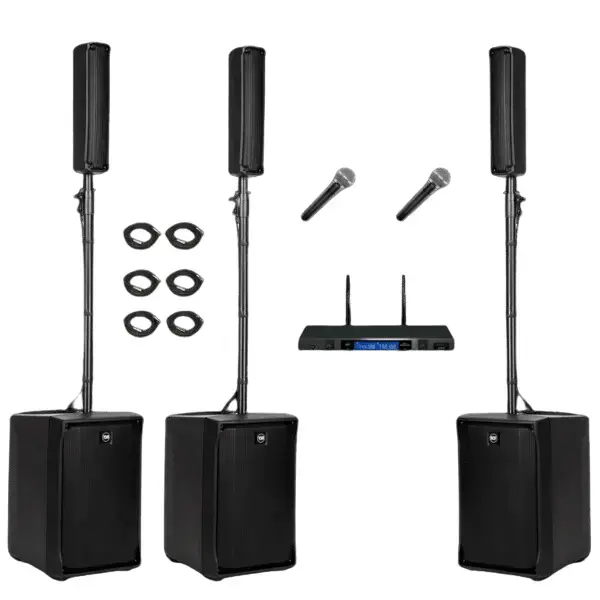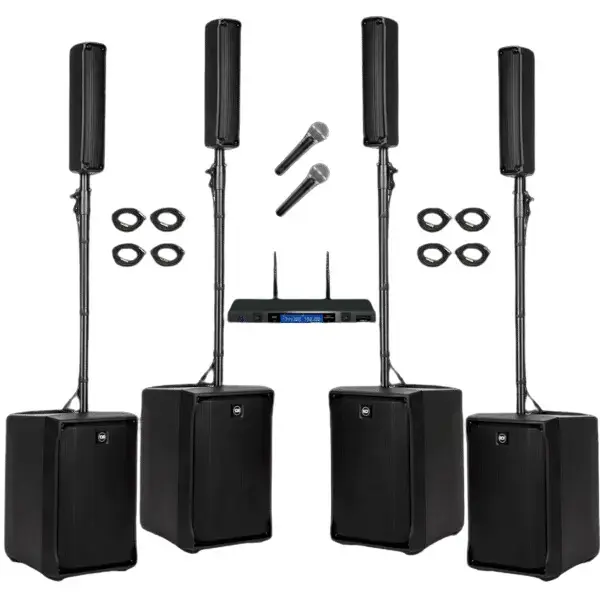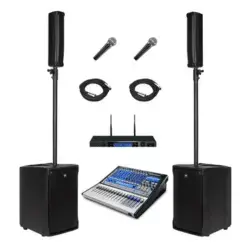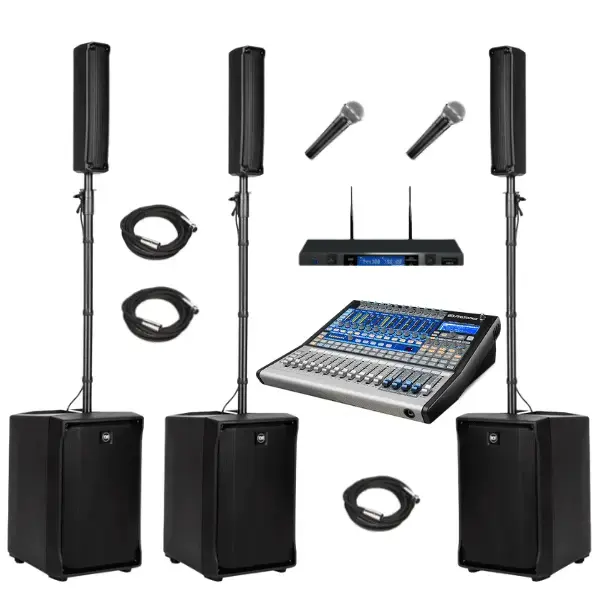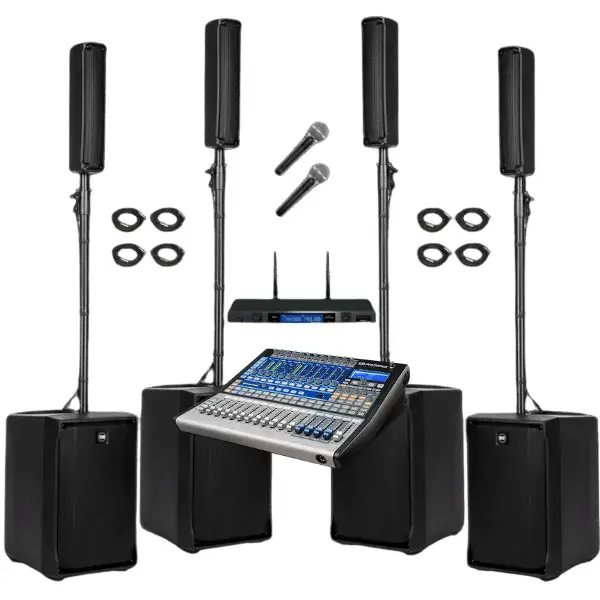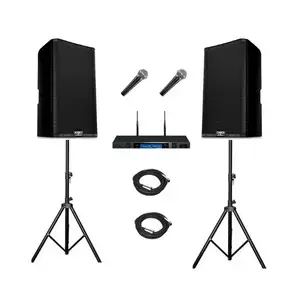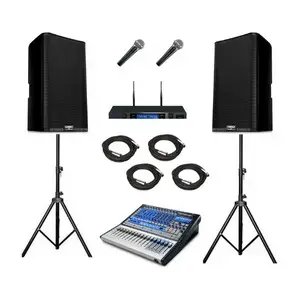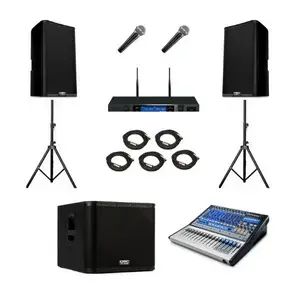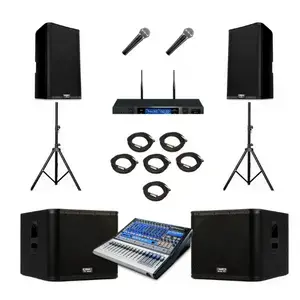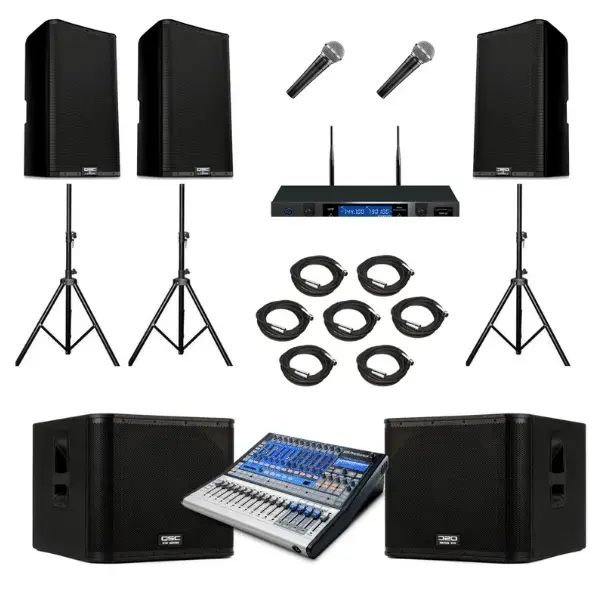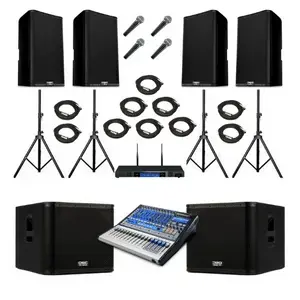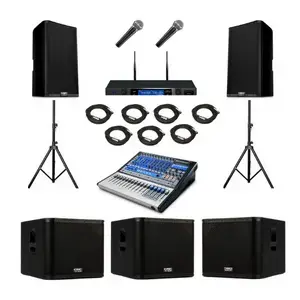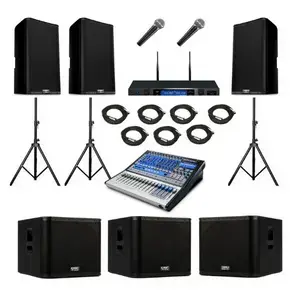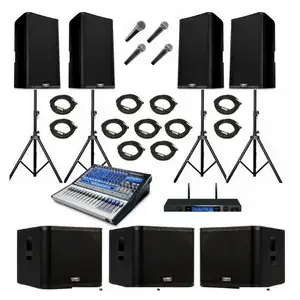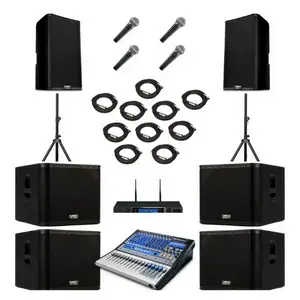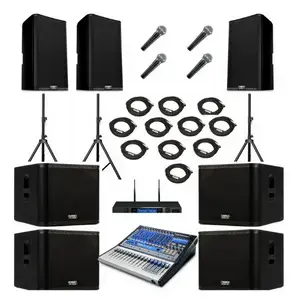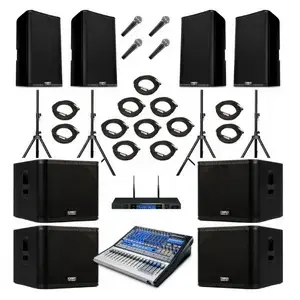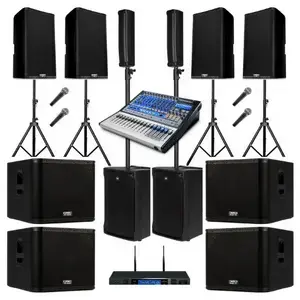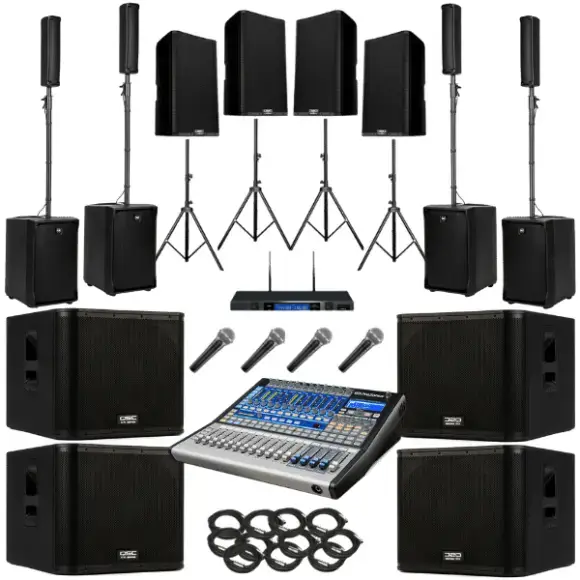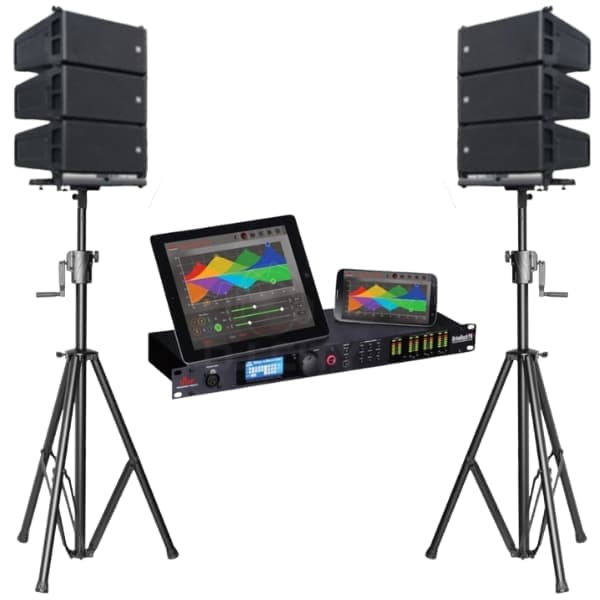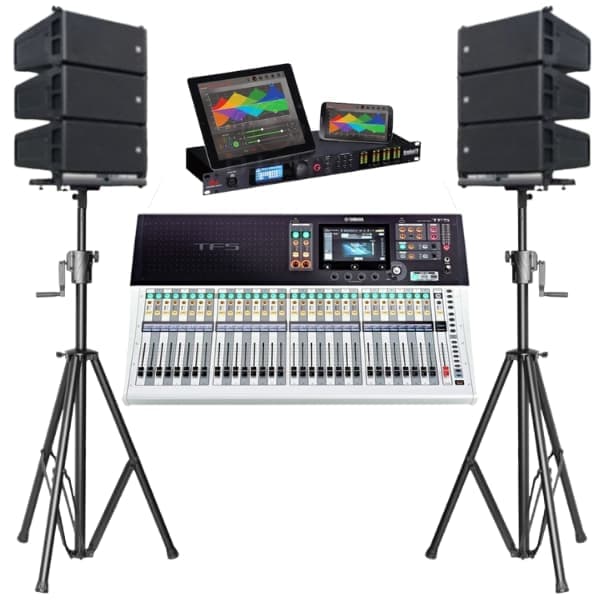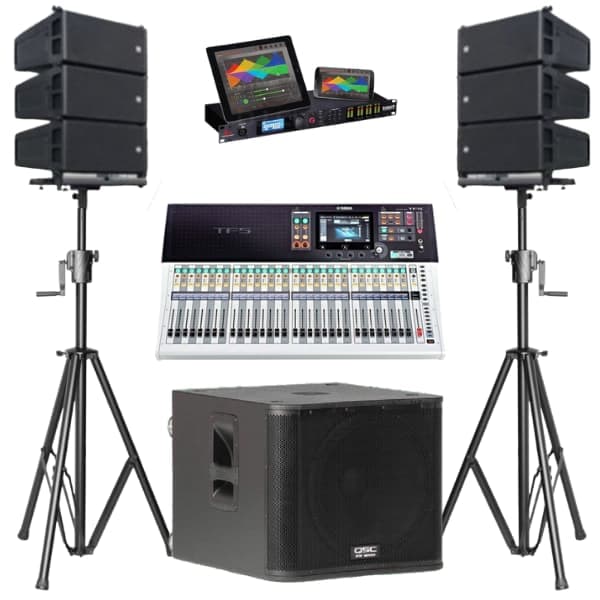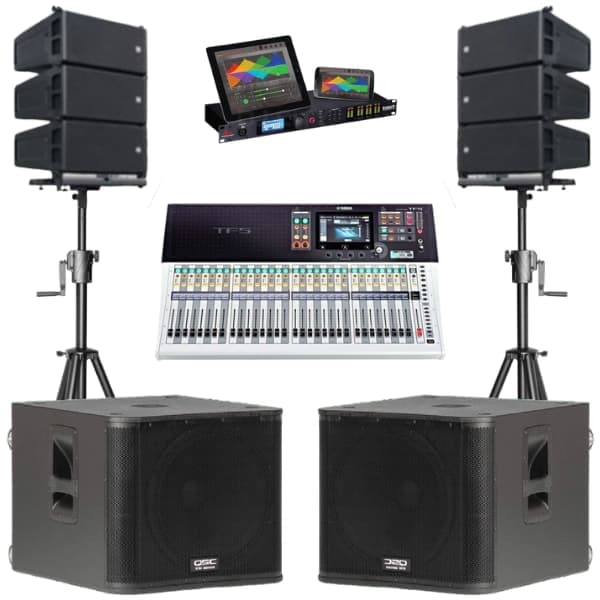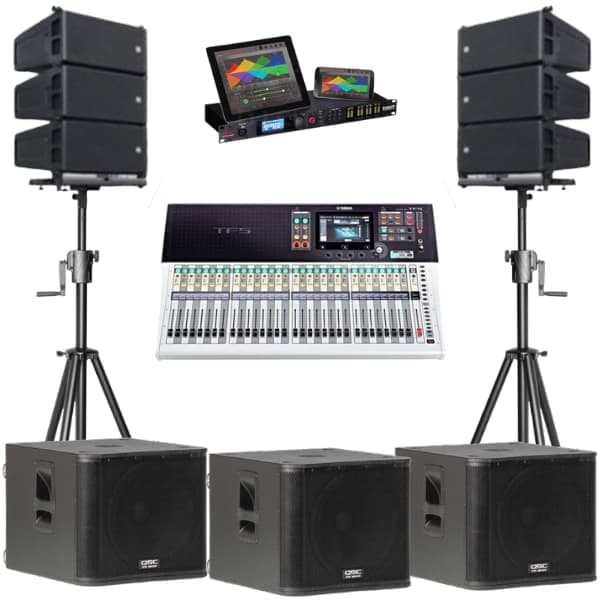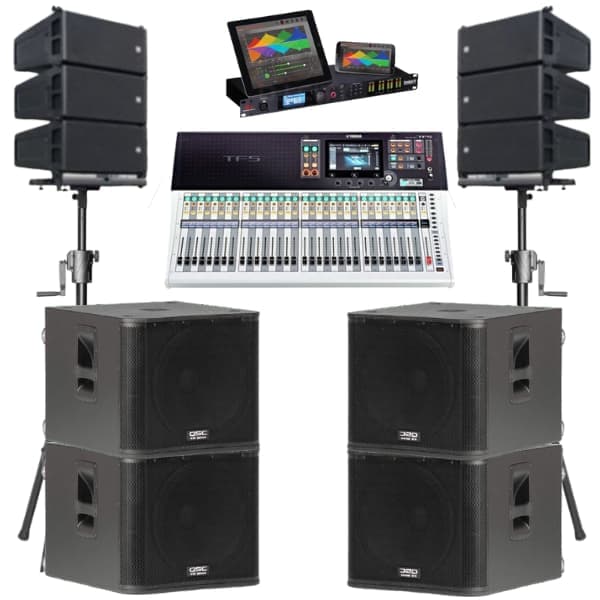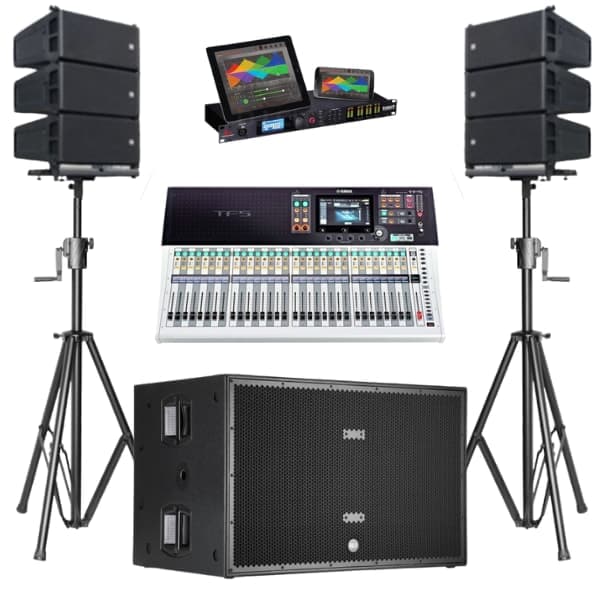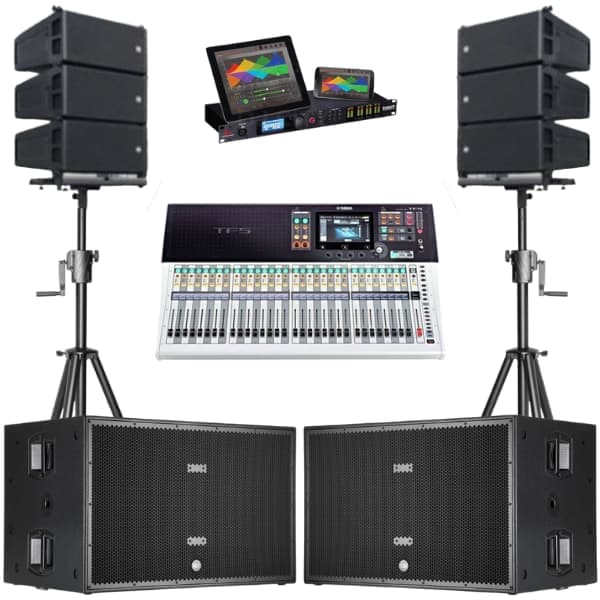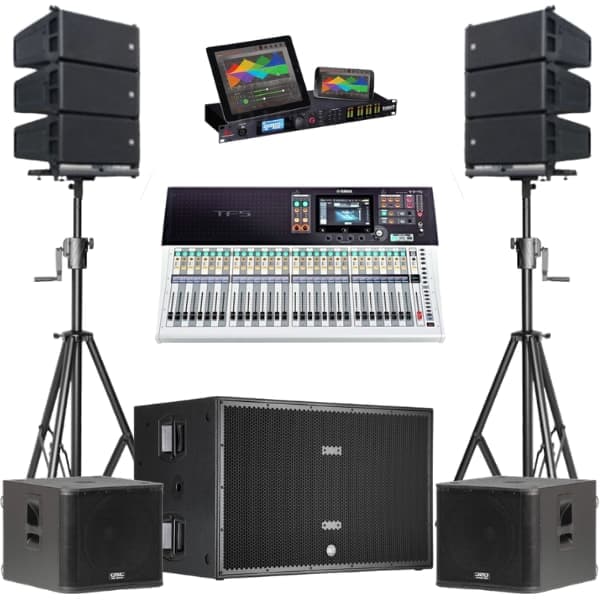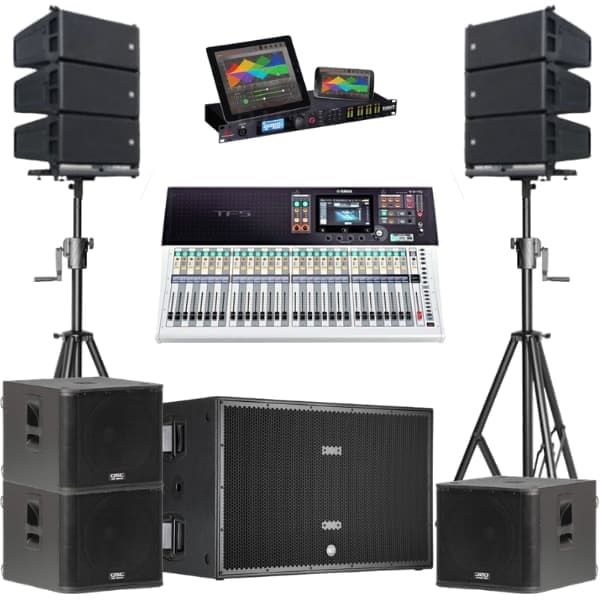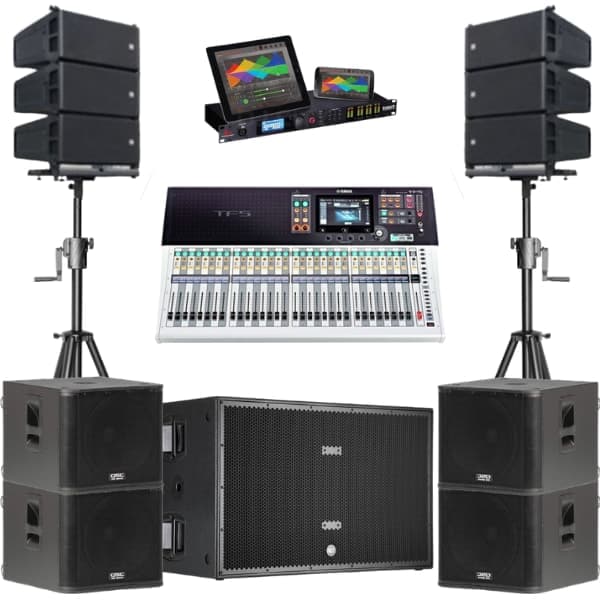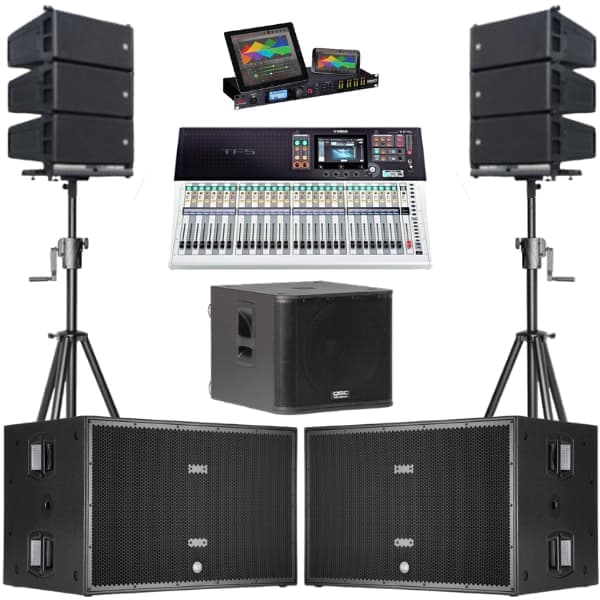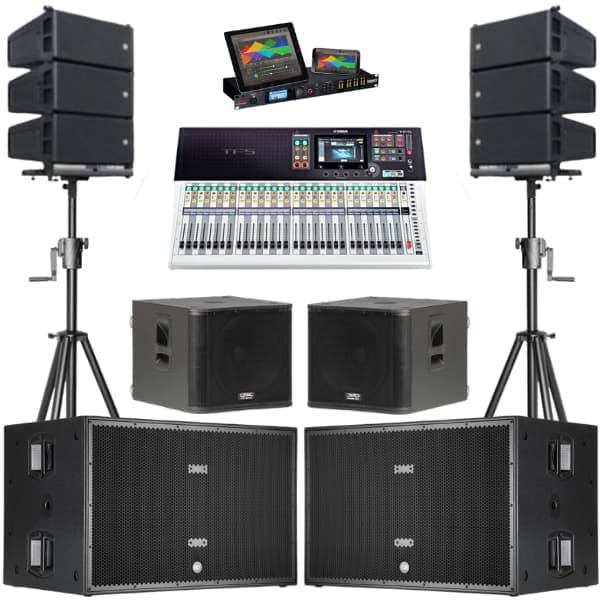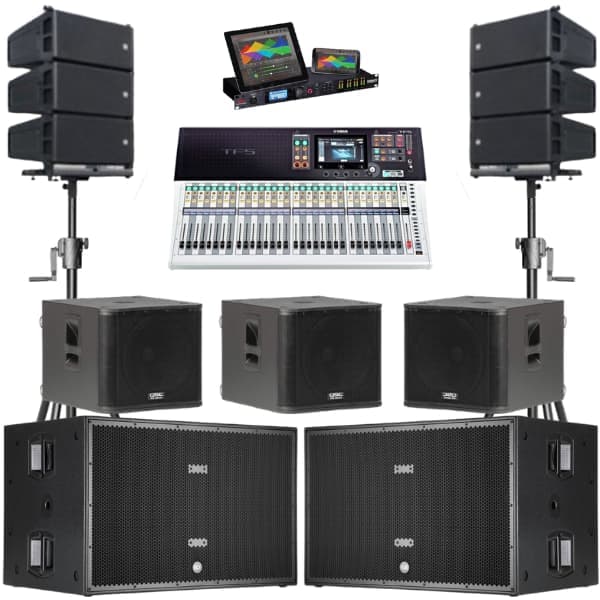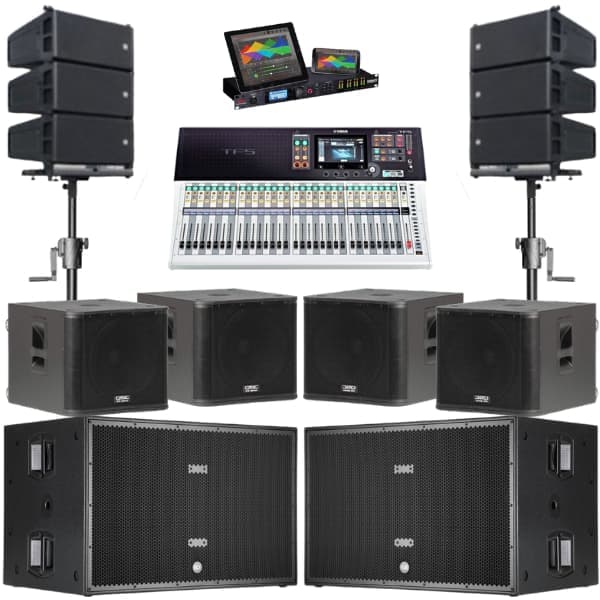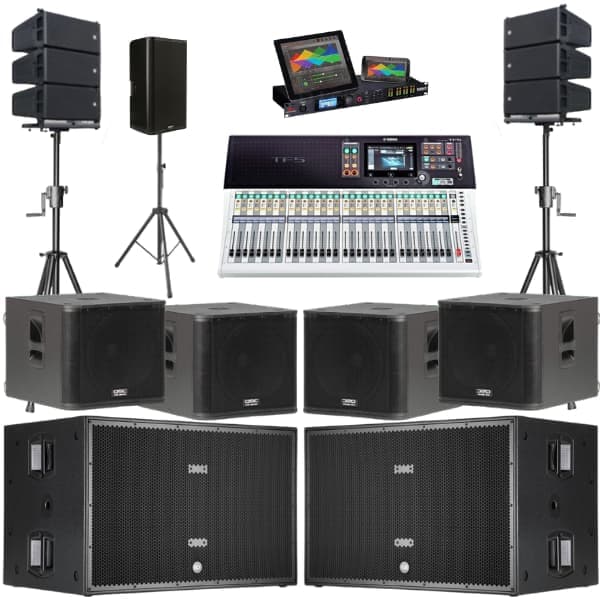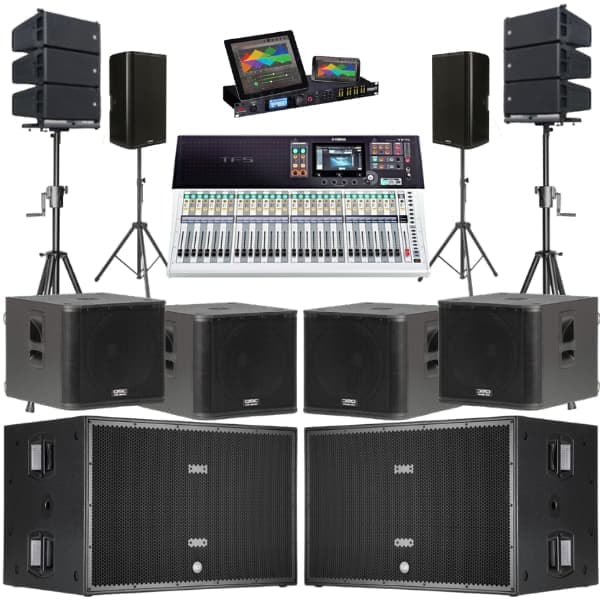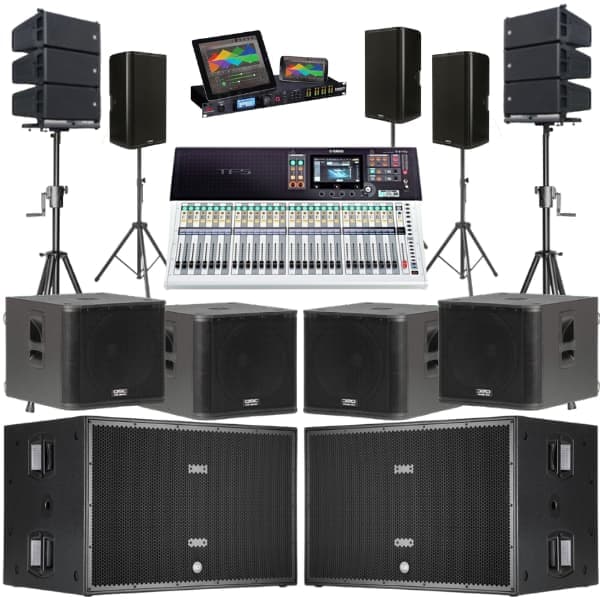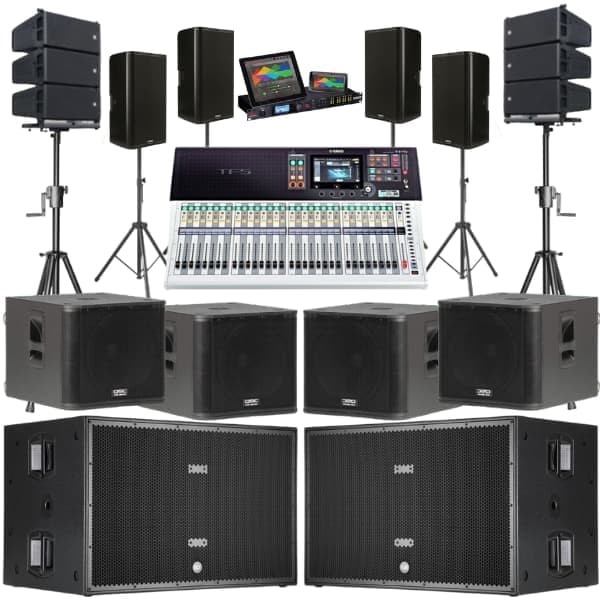How to Do a Good Sound Balance in Live PA? Today we are going to discuss about this topic. No matter whether you're planning a DJ event, a live band, or a corporate function, achieving the well balanced sound is one of the most important things in your event.
The importance of the balanced sound is to get vocals and instruments sound at the same level, without overpowering each other. At Star Sounds Limited, we’ve helped hundreds of events across Auckland deliver crystal-clear audio. Today we aim to discuss some expert advice on how to achieve great sound balance for any live sound setup from this article.

What is Sound Balance in a Live PA System? - Learn more about "How to Do a Good Sound Balance in Live PA"
What is sound balance? it is refers to balance each sound sources levels like vocals, instruments and effects in good levels. When you mix all these sources, you get well balance sound without over powering each other. When you properly balanced each inputs, the sound will be smooth, clean, and enjoyable.
Key Components of Live PA Sound Balance
When you mix a live PA, you must understand about some of the main PA equipment that are used in live PA concerts. Without knowing how they work, it is not easy to mix and balance the sound. Below are some of the main PA equipment we usually use in a live PA event:
Microphones – Use for speeches, signing and for instruments.
Mixers – Connect all input sources and adjust the input levels.
Speakers – Mainly two types of speakers like main front-of-house speakers and stage monitors.
Amplifiers and DSPs – They help to amplify input signals and tailor the sound output.
At Star Sounds Limited, we hire out professional and branded high-quality PA equipment in Auckland. Our stock includes world famous speaker brands like RCF, QSC and JBL. We also hire out line array speakers, like RCF HDL 6-A. Along with them you can hire RCF 8006 dual 18 subwoofers for low frequencies.
Step-by-Step Guide to Balancing Live Sound
1. Start with a Sound Check
A good sound check is one of the important part of your event. This will allows you to:
Test each input channel individually (vocals, instruments, etc.)
Adjust gain levels on the mixer
Set initial EQ settings
Listen for feedback or distortion
When you do a sound check, do not rush, take your time. A good sound check will normally take about an hour.
2. Set the Right Gain Structure
The first thing is setting the gain level of your input signals. This will help you to controls the input level of each input signals. You can use the PFL (Pre-Fade Listen) option in your mixer to monitor the signal levels.
3. Use EQ to Shape the Sound
Voice and instrument signals have different levels of frequencies. You can use EQ (equalization) in your mixer to shape the tone of each source:
Frequency Cut - You can cut unwanted frequencies to avoid frequency clashing or muddy sound.
Frequency Boost - You can boost certain frequencies when necessary. Usually for presence (vocals) or clarity (acoustic instruments).
Add Low-Cut for vocal microphones - Roll off low-end rumble on vocals using a low-cut filter (~100 to 80Hz).
4. Balance the Levels
When you set mixer gain and EQ, the next step is adjusting the input channel fader levels. It is good to start with vocals first. Because they are normally the most important element among other PA inputs. Remember to set the fader levels slightly higher than other instruments.
Also, when connecting backing tracks or drums, remember not to set their levels higher than vocals or lead instruments.
5. Use Compression Wisely
Compression can smooth out sudden peaks in sound level. However, you need to ensure that you do not over compress as it can negatively affect the sound clarity.
When do you have to add compression:
Balance vocal microphone sounds. Smooth peaks.
Shape peaks on instruments like bass guitars and snare drums
Control lead guitar signals
One of the most important part is setting the ratio. Set it between 2:1 or 3:1 for good results. You can also adjust the threshold accordingly, so it only engages when needed.
Bonus Tips for Perfect Live Sound
✓ Walk the Room
One of the most important thing during the sound balance is, listing the sound at different locations of the venue. Do not just stand at the front and decide. You need to walk through out the venue to find dead spots. Especially the back of the venue. Because sometimes sounds great at the front, but not at the back.
✓ Use High-Quality Gear
Always use high quality cables and microphones. Because if they are low quality, then that can affect your mix. So it is best to hire reliable PA equipment in Auckland from Star Sounds Limited. Because we provide only professional-grade gear, from microphones to line array systems.
✓ Don’t Forget the Monitors
Performers hear themselves mainly from stage monitors. Therefore, you need to be very careful when balancing stage monitors as poor mix can create difficulties to the performers.
Balance monitor mixes separately from the main front-of-house sound.
Common Sound Balance Mistakes to Avoid
Too much gain - when you turn gain knob too high, it produce distortion. Therefore, remember not to go over 0 dB when setting gain.
Poor EQ: Poor EQ can cause muddy or harsh mix.
low frequencies overload - When you mix, make sure you do not overload your subwoofers with low frequencies. especially bass guitar and kick drum
Neglecting to test in different parts of the venue
Forgetting to ring out mics, leading to feedback issues
Hire PA Equipment in Auckland with Free Setup
At Star Sounds Limited, we offer affordable live PA hire in Auckland with free delivery, setup, and collection. Whether you’re a DJ, band, or event planner, we can help you achieve perfect sound balance with our premium equipment and expert service.
From line array speaker hire to digital mixer rentals, we’ve got you covered for weddings, church events, corporate gigs, and concerts.
🎧 Contact Star Sounds Limited today for expert PA hire in Auckland and let your next event sound amazing!
Website - www.starsounds.co.nz
Mob: 021 091 78 190
Email: [email protected]
Related posts:
Renting PA Systems in Auckland
Lighting System Hire in Auckland
RCF 8004 Subwoofer Hire in Auckland
RCF HDL10 Line Array Hire
How to Set Up a Wedding PA System
QSC K118 Subwoofer Hire
Hire DJ Sound System in Auckland
How to Set Up Different Brand Subwoofers in a Live Sound Setup
In-Ear Monitor Hire in Auckland
Allen & Heath SQ5 Mixer Hire
Top 5 Benefits of Hiring a PA System
Dual 18 Subwoofer Hire in Auckland
Subwoofer Cardioid Setup
Sound System rentals in Auckland
Subwoofer Placement in Live Events
RCF HDL6 and RCF 8006 AS
Affordable PA Rental in Auckland
Perfect Vocal EQ settings
Power Distributions for PA systems
Passive Speakers vs Active Speakers
Table of Contents
Toggle

